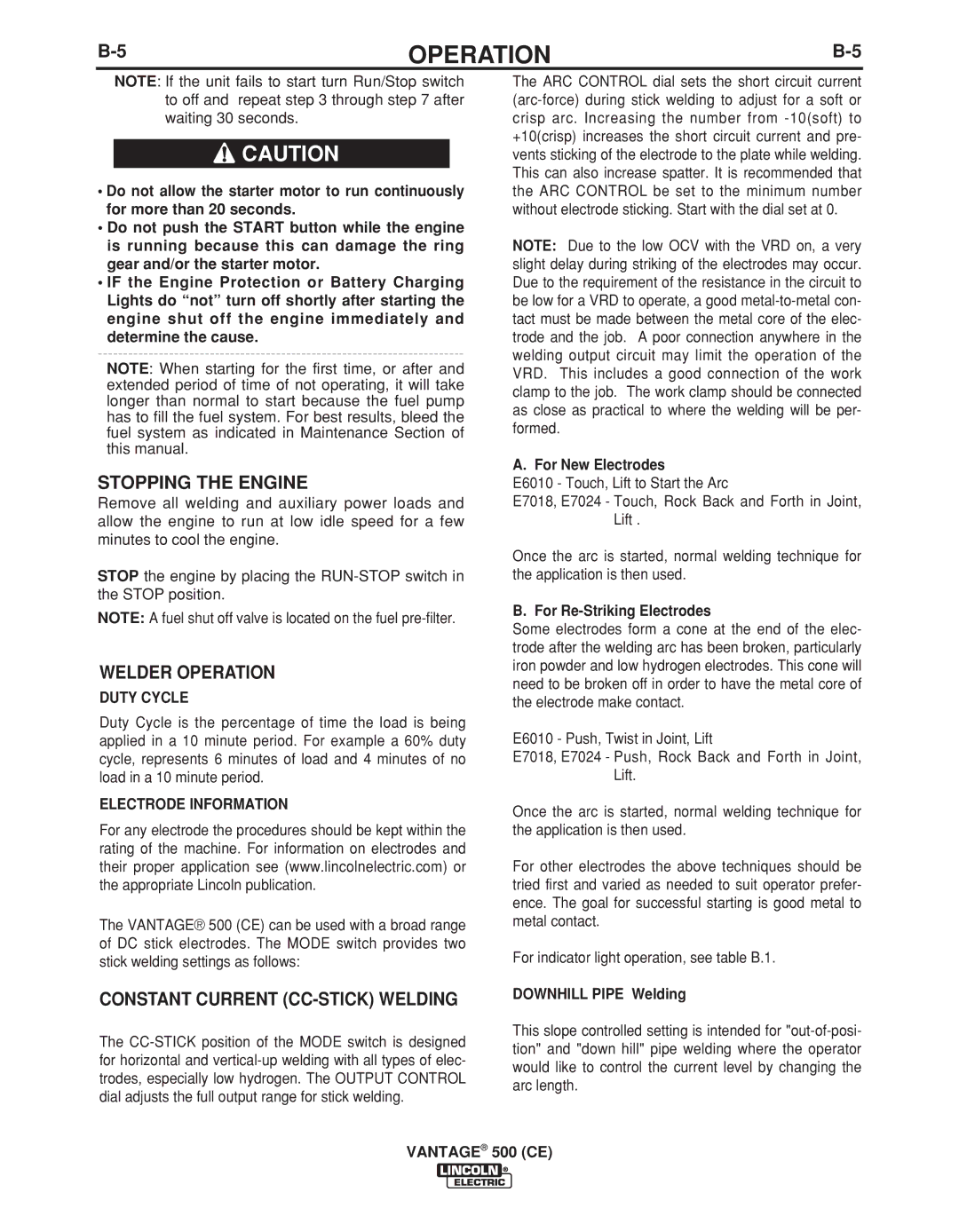
OPERATION | ||
|
|
|
NOTE: If the unit fails to start turn Run/Stop switch to off and repeat step 3 through step 7 after waiting 30 seconds.
![]() CAUTION
CAUTION
•Do not allow the starter motor to run continuously for more than 20 seconds.
•Do not push the START button while the engine is running because this can damage the ring gear and/or the starter motor.
•IF the Engine Protection or Battery Charging Lights do “not” turn off shortly after starting the engine shut off the engine immediately and
determine the cause.
NOTE: When starting for the first time, or after and extended period of time of not operating, it will take longer than normal to start because the fuel pump has to fill the fuel system. For best results, bleed the fuel system as indicated in Maintenance Section of this manual.
STOPPING THE ENGINE
Remove all welding and auxiliary power loads and allow the engine to run at low idle speed for a few minutes to cool the engine.
STOP the engine by placing the
NOTE: A fuel shut off valve is located on the fuel
WELDER OPERATION
DUTY CYCLE
Duty Cycle is the percentage of time the load is being applied in a 10 minute period. For example a 60% duty cycle, represents 6 minutes of load and 4 minutes of no load in a 10 minute period.
ELECTRODE INFORMATION
For any electrode the procedures should be kept within the rating of the machine. For information on electrodes and their proper application see (www.lincolnelectric.com) or the appropriate Lincoln publication.
The VANTAGE® 500 (CE) can be used with a broad range of DC stick electrodes. The MODE switch provides two stick welding settings as follows:
CONSTANT CURRENT (CC-STICK) WELDING
The
The ARC CONTROL dial sets the short circuit current
NOTE: Due to the low OCV with the VRD on, a very slight delay during striking of the electrodes may occur. Due to the requirement of the resistance in the circuit to be low for a VRD to operate, a good
A. For New Electrodes
E6010 - Touch, Lift to Start the Arc
E7018, E7024 - Touch, Rock Back and Forth in Joint, Lift .
Once the arc is started, normal welding technique for the application is then used.
B. For Re-Striking Electrodes
Some electrodes form a cone at the end of the elec- trode after the welding arc has been broken, particularly iron powder and low hydrogen electrodes. This cone will need to be broken off in order to have the metal core of the electrode make contact.
E6010 - Push, Twist in Joint, Lift
E7018, E7024 - Push, Rock Back and Forth in Joint,
Lift.
Once the arc is started, normal welding technique for the application is then used.
For other electrodes the above techniques should be tried first and varied as needed to suit operator prefer- ence. The goal for successful starting is good metal to metal contact.
For indicator light operation, see table B.1.
DOWNHILL PIPE Welding
This slope controlled setting is intended for
